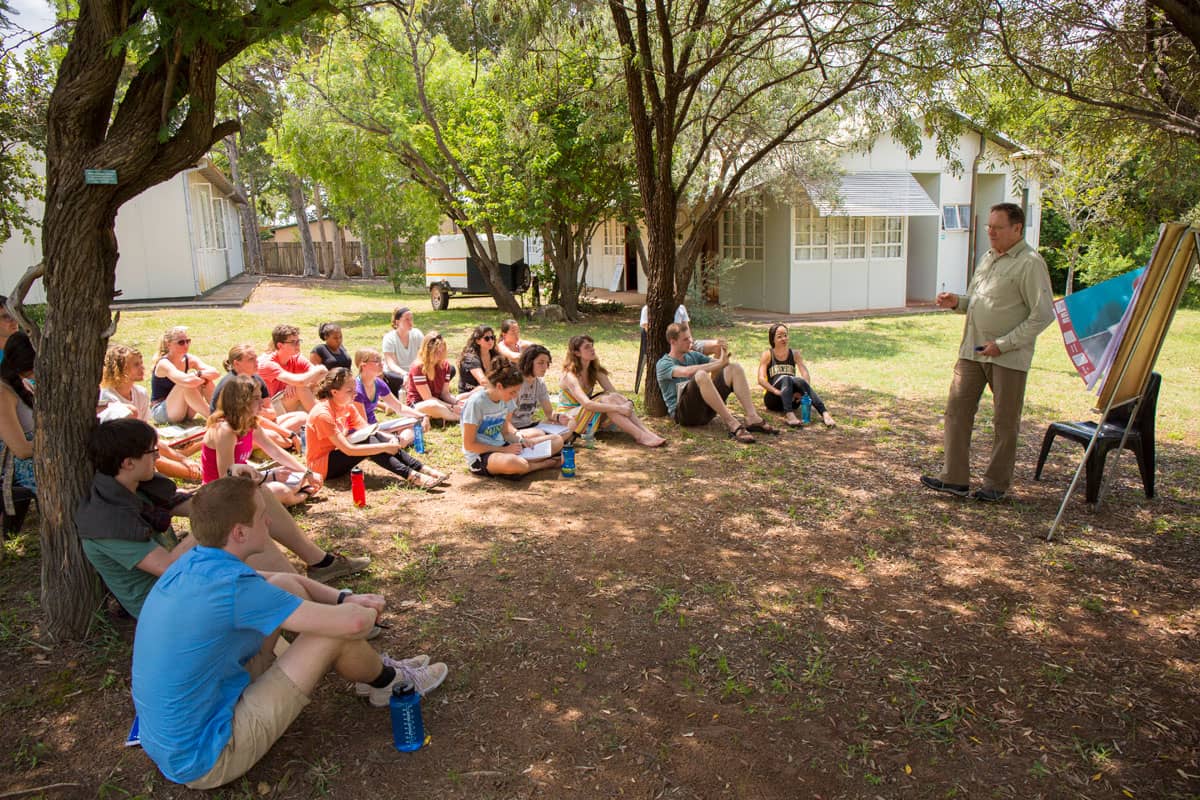
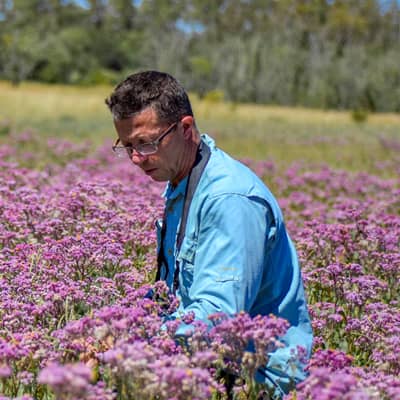
Botany, Plant biology and Plant systematics, Universidad de la República in Uruguay
Mauricio Bonifacino works at Universidad de la República in Uruguay where he teaches botany, plant biology and plant systematics both to undergraduate and graduate students. Mauricio obtained his PhD in 2003 from La Plata University in Argentina and conducted postdoctoral research at Smithsonian Institution in Washington DC (2008). His main interests include systematics, biogeography and floristics of several groups in the Compositae, mainly those with Andean-patagonean distribution. Mauricio has been involved in the course several times, either as an assistant, invited professor or coordinator.
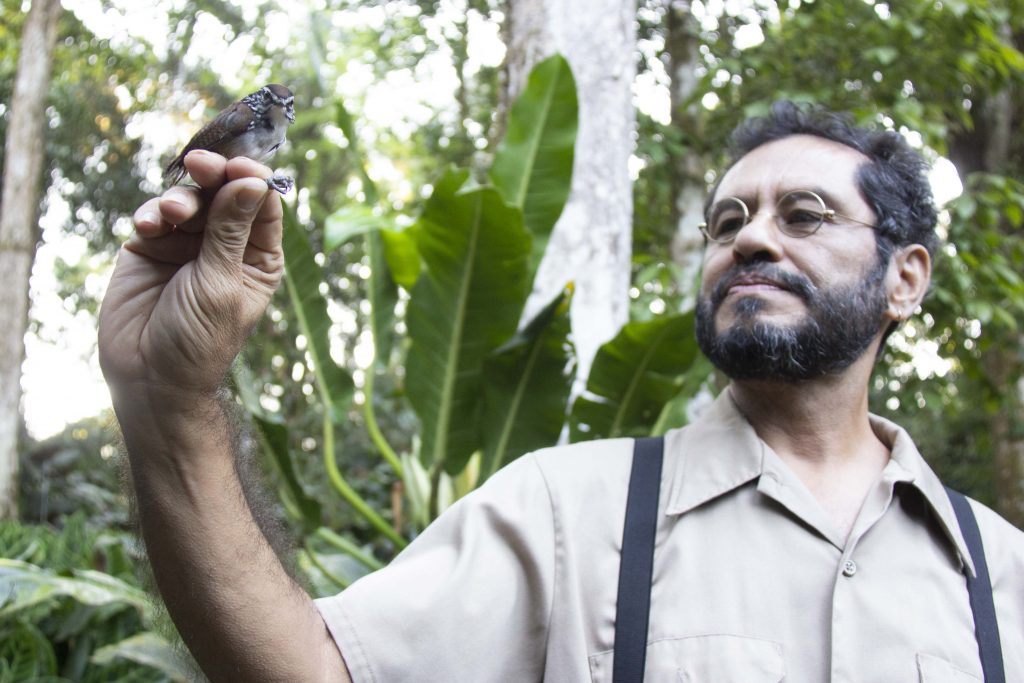
Universidad de Costa Rica
Edgardo is a biologist interested in soundscape ecology, avian ecology and conservation. Over the last 14 years, Edgardo has been teaching tropical ecology and environmental science to abroad US programs in Costa Rica and has served as a guest professor for OTS graduate courses for more than 20 years. Currently, Edgardo works as an interim professor in the Biology Department at the University of Costa Rica, teaching landscape ecology and habitat restoration.

Emilia is a passionate tropical biologist dedicated to better understand ecology, behavior, and evolution of what she calls the miniature world unknown by many people: the world of terrestrial arthropods. She did her undergraduate and Master’s program at the University of Costa Rica, where she studied acoustic behavior, ecology and morphology to reveal that what was considered one species, was actually three different species of treehoppers. Emilia is also passionate about teaching in-field programs, where she believes the hands-on experiences lead the way to a better understanding of the ecosystems and how to research any part within them at a micro or macro scale. She has taught at high school, undergraduate, and postgraduate university levels, in English and Spanish, and across the small and hyper-diverse Costa Rica land, with organizations both from C.R. and the U.S.
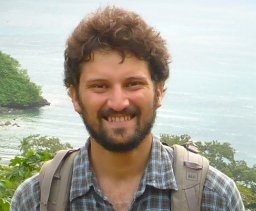
Ph.D. Integrative Biology, University of California, Berkeley
Darko Cotoras’ research interests are related with the study of the historical processes that create biodiversity, particularly in conditions of isolation. His main study groups are the spiders and other invertebrates from the Pacific Rim and its islands, with special attention to volcanic archipelagos and the Gondwanic landmasses. He combines field and museum work with phylogenetics, population genetics and genomics. Due to his research on understudied taxa and remote locations, he is also interested in biodiversity discovery: species inventories, species descriptions and natural history observations.
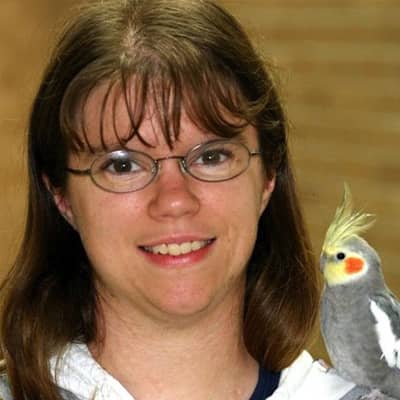
Ph.D., University of Georgia
carissa.ganong@tropicalstudies.org
Carissa is an aquatic ecologist and invertebrate zoologist with a strong interest in anthropogenic impacts on aquatic ecosystems, and her research integrates in situ field studies, laboratory mesocosm experiments, and analytical chemistry techniques. She earned her Ph.D. from the University of Georgia, and her dissertation work examined the effects of precipitation regime on stream pH and stream macroinvertebrates at La Selva Biological Station. She is currently an assistant professor of biology (and all things invertebrate) at Missouri Western State University. She has coordinated the summer NSF-OTS La Selva REU program since 2014 and also coordinated the OTS field ecology course in 2017.
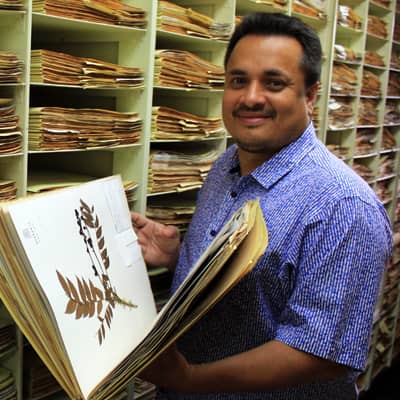
Associated Researcher, Universidad de Antioquia in Colombia
Alvaro Idarraga Piedrahíta works at Universidad de Antioquia in Colombia where he is an associated researcher at Universidad de Antioquia’s Herbarium. His main interests lie in the systematics of Araliaceae, as well as in biogeography and floristics of Colombian flora. Alvaro has published many plant field guides and is an editor of the Vascular Plants Catalog for Antioquia Province. He is currently conducting his PhD, focusing on understanding the distribution patterns of dry forest taxa in Colombia. Alvaro has taken part in the course several times, either as an assistant or coordinator.
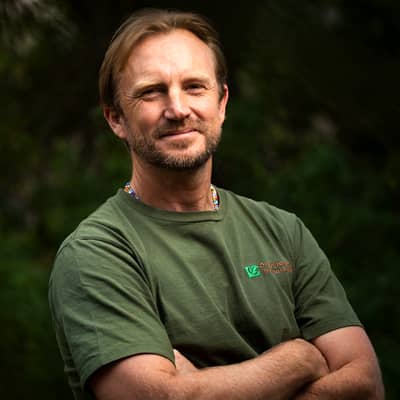
Ph.D. Botany, University of Cape Town
laurence.kruger@tropicalstudies.org
Dr. Kruger is the Director of Curriculum for OTS and is based in Skukuza, Kruger National Park. His primary interests lie in functional ecology and how species response to disturbance. His interests lie specifically on the demography of woody plants in a variety of SA biomes, the bottlenecks imposed in each system, and which traits are critical in overcoming these. During his Ph.D., Dr. Kruger focused on the importance of re-sprouting in South African coastal forests, fynbos and savannas. His current work is focused on the impact that elephants and fire have on savannas and how resilient plants and communities might be in response to this disturbance. Allied to this is work on the impact of the loss of vegetation complexity on resident faunal communities. A large portion of Dr. Kruger’s private consulting work has been in the field of conservation, in particular conservation planning. This work has included surveys of natural habitats (biodiversity surveys), identifying the threats (development, habitat transformation, alien vegetation/faunal invasives), and the setting of conservation targets. This work has provided him with the opportunity to become more actively involved in conservation, whilst still engaging on a theoretical level.
Born into a family of biologists and humanitarians, Dr. Kruger has followed his passion for both by running field based, experiential learning programs in and around South Africa. Given the challenges facing education institutions (lack of resources, limited access to the field) and the barriers to education many students face, he sees our goal as OTS to be the dismantling of these obstacles.
In delivering life changing, academically rigorous field courses, Dr. Kruger aims for OTS programs to provide experiences that allow for growth in aspirations for students and academics alike. He feels strongly that we need to rethink our role in society and return our focus to humanity rather than self-actualization and how we could contribute to others. Aside from focusing on quality, integrity and creativity, Dr. Kruger has found that the single most important ingredient in education is to have fun.

Ph.D. Systematic Botany, University of Illinois at Urbana-Champaign
Robbin Moran is coordinator and will be with the course for its duration. He is the Nathaniel Lord Britton Curator of Botany at the New York Botanical Garden, and his main interests are the evolution, geography, and ecology of ferns and lycophytes. He has published four books and over 120 papers on ferns. Robbin was the main writer, editor, and organizer for the pteridophyte volume of Flora Mesoamericana, a work that treats the ferns and lycophytes (nearly 1400 species) occurring from southern Mexico to Panama. He has co-organized eight OTS Tropical Plant Systematics courses and several Spanish-language versions of the course. You can view Robbin’s web site at https://www.nybg.org/person/robbin-moran/.
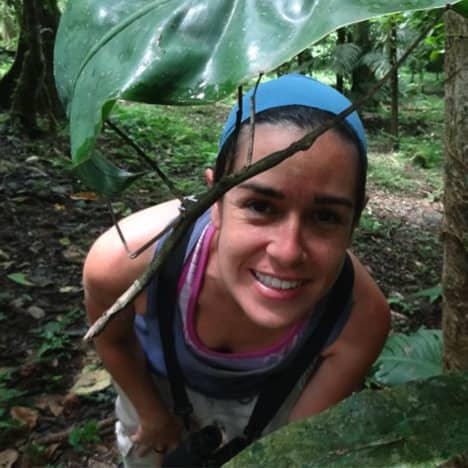
Ecology, Evolution, and Behavior, The University of Texas at Austin
sofia.rodriguez@tropicalstudies.org
Sofía studied biology at the University of Costa Rica, and earned a doctorate in ecology, evolution and behavior at The University of Texas at Austin. At UT Austin, she studied the spread of a devastating fungal pathogen (better known as chytrid or Bd) in populations of the túngara frog in Panamá, and how infections with this pathogen affect the frog’s behaviors and reproductive success. Her continuing research interests are at the intersection of animal behavior, sexual selection, and disease ecology, especially changes in behavior caused by disease. Sofia is also passionate about teaching, especially in the field. Throughout her career she has taught at high school and university level, in Spanish and English, and with organizations from Costa Rica, Mexico, and the United States. At OTS she is the Director of Academics in Costa Rica, and she also coordinates the graduate courses Tropical Biology: an Ecological Approach and Ecología Tropical y Conservación.
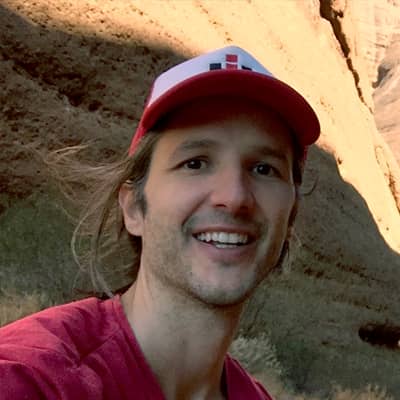
Macquarie University, Sydney, Australia
Fernando studied Biology at the University of Costa Rica, and then specialized in Animal Behavior in Australia. Currently, Fernando is investigating the morphology and behavior adaptations of different insects in Costa Rica and Australia. He also serves as an interim professor in the Biology Department at the University of Costa Rica, teaching courses in the area of Evolution and Zoology. Fernando has a long history of participating in OTS field courses, dating back to 2014.
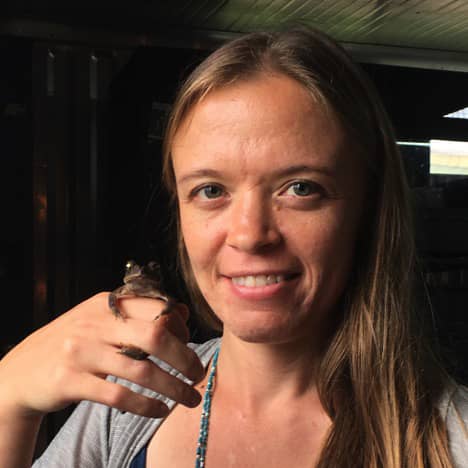
University of Miami
Jenny Stynoski studies the evolutionary development and behavior of poisonous frogs and toads in Central and South America using chemical, ecological and genomics approaches. She is a research professor at the University of Costa Rica with joint appointments at the Instituto Clodomiro Picado and the Schools of Animal Science and Biology. Jenny has been teaching field courses with OTS in Costa Rica since 2009.
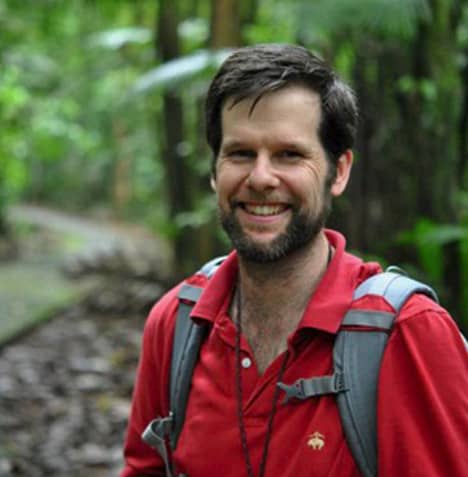
University of Florida
James (Eddie) Watkins is co-coordinator and will be with the course for its duration. He is an Associate Professor of Biology at Colgate University where he also directs the Center for Learning, Teaching, and Research. Eddie’s main interest is the ecology and physiology of ferns, specifically of the gametophyte generation. He has published dozens of papers on functional ecology of ferns across temperate and tropical regions. Eddie has worked in Costa Rica for over two decades and has served as a resource person for the OTS Tropical Plant Systematics and Tropical Ecology courses. He has also co-coordinated all four of the OTS Tropical Ferns and Lycophytes courses with Robbin Moran. You can view Eddie’s website at https://eddiewatkins.com/.
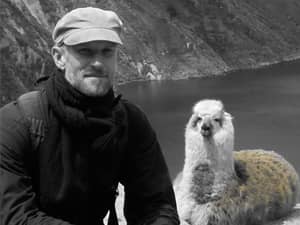
University of Louisiana at Lafayette
Las Cruces Coordinator
Dr. Walter is extremely pleased to continue coordinating the Louis Stokes Alliance for Minority Participation REU program with OTS. Having traveled far and wide around the world, he is most strongly drawn to the wondrous biodiversity found within the Neotropical ecosystems of Latin America. Within the U.S., he has studied cavity-nesting birds in the Pacific Northwest (M.S.), forest ecology in the Appalachian Mountains (U.S. Forest Service), and seabirds along the northern Gulf coast (Ph.D.). He has also studied rainforest frogs in Australia, worked with natural resource management in Guatemala, studied tropical biology in Costa Rica through OTS, managed a biodiversity research team in Ecuador, and taught a tropical avian ecology course in Panama. He has taught undergraduate courses in environmental studies, wildlife ecology, and field studies for many years, and currently teaches at Texas State University. In general, he is interested in learning about virtually all aspects of life, but he is particularly fond of spending time in nature, playing traditional music, and woodworking with hand tools. He has lived, studied, and worked in Latin America for over 5 years and is very excited to return for the 2019 field program! Pura vida!
At OTS, Dr. Walter has coordinated the Tropical Biology Summer Program, co-coordinated NAPIRE and now coordinates the LSAMP REU Program.